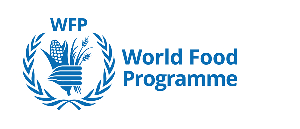The United Nations World Food Programme (WFP) has said that a staggering 33 million people are expected to face acute food insecurity in Nigeria by 2025.
The WFP said in a statement issued by the head of communications and media for the United Nations World Food Programme that the food insecurity and malnutrition analysis, Cadre Harmonisé, led by the Government of Nigeria and supported by partners, highlighted the deterioration of food security in the country.
The report predicts that 33.1 million people will face high levels of acute food insecurity during the upcoming lean season from June to August.
“This represents an alarming increase of 7 million people from the same period last year, driven by economic hardship, coupled with record-high inflation, the effects of climate change, and persistent violence in the northeastern states of the country.
“Between October and December 2024, 25.1 million people are expected to experience acute food insecurity, even at the peak of the harvest season. Of this, 3.8 million live in the northeastern states, and this number is projected to rise to 5 million,” the statement read.
According to the WFP, nationally, the number of people experiencing emergency levels of food insecurity is projected to increase from 1 million in the peak of the 2024 lean season to 1.8 million at the same time in 2025, representing a worrying 80 per cent rise.
“Approximately 5.4 million children and nearly 800,000 pregnant and breastfeeding women are at risk of acute malnutrition or wasting in six of the most affected states: Borno, Adamawa, and Yobe in the northeast, and Sokoto, Katsina, and Zamfara in the northwest. Of these, an alarming 1.8 million children could face severe acute malnutrition (SAM) and require critical nutrition treatment,” the Punch newspaper report on Friday quoted the WFP as saying.
It added that the statement stated that Nigeria is grappling with economic hardship, compounded by record-high inflation (which reached 40.9 per cent for food, and 34.2 per cent for all items in June 2024).
GIK/APA


